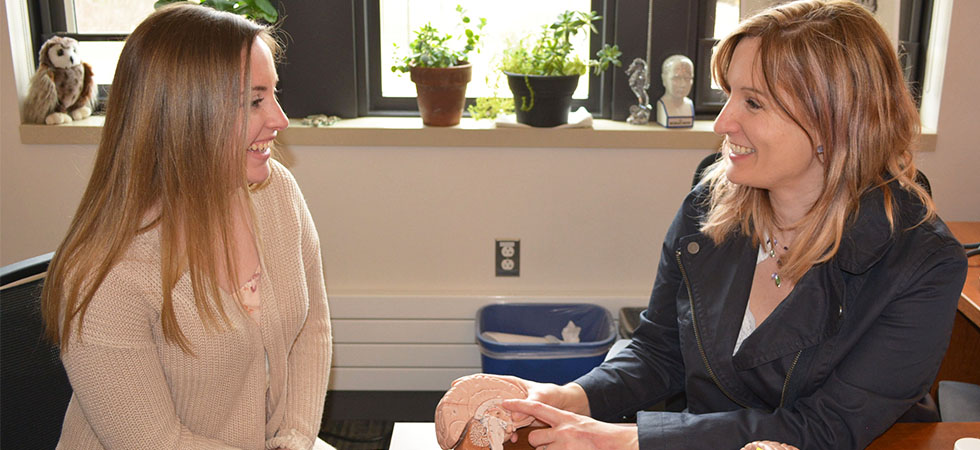Are There Benefits of Screen Time for Teenagers?

Assumption Associate Professor of Psychology Sarah Cavanagh, Ph.D., was recently tapped to testify before the Washington State Human Services and Early Learning Committee on the impact of teenage exposure to “screen time” on their behavioral health and personal development.
According to Prof. Cavanagh, one complexity of discussing possible effects of screen time is that the term combines time spent FaceTiming with friends, playing Fortnite, binge-watching Netflix, using creative apps, and working on homework with the aid of a technological device. Prof. Cavanagh shared that it is unlikely that all of these forms of screen time have the same effect.
“Understanding the relationship between screens and mental health in our youth is extremely complicated. However, there is good news to complement the bad news,” shared Prof. Cavanagh.
Prof. Cavanagh, the author of Hivemind: Thinking Alike in a Divided World shared that while “we worry that both we and our youth are addicted, that we’re distracted, that our mental well-being is suffering” from these relatively new social media platforms, panic about new technologies decaying our social fabric are actually ancient.
“Moral panics about new technologies date back to the invention of writing, which Socrates feared would result in a loss of memory,” said Prof. Cavanagh. “For if we could write things down, wouldn’t our brains lose the ability to hold on to old information?”
For example, with the advent of the printing press, reliable sources of information shifted from the pulpit or the town crier to the newspaper. “Skeptics warned of the ‘sullen silence’ of readers, of the dispersion of the people,” shared Prof. Cavanagh. She added that when radio was introduced, “decriers of radio feared especially for the children and for their sleep in particular – that they would no longer be able to pay attention to school assignments, that their sleep would be disrupted by this cacophony of stimuli.”
Similar panics ensued with the introduction of television and the internet. “In all of these cases, we adapted, we adjusted,” said Prof. Cavanagh. “Until the next technology came along, inciting a new panic.”
Prof. Cavanagh also pointed out that during the rise of smartphone use, societal shifts occurred acting as additional influencers on teens’ development. These include the opioid crisis; mass shootings, particularly in schools; political strife; massive income inequality; climate change; increased costs to attend college; and heightened awareness of racial injustice.
In addition, according to Prof. Cavanagh, at home and in school, teenagers are subject to overprotective parenting practices as well as a constant reminder of their academic standing and expectations to perform at the highest level. She said changes in middle and upper-class parenting practices first called helicopter parenting, evolving into bulldozing parenting as parents got more protective and started mowing down obstacles their children faces, to what psychologist Jonathan Haidt now calls an “epidemic of safetyism” has also shifted how teens cope and adjust.
She said that while many are concerned about increased use of technological devices and teenagers’ development, she also sees the benefits. For instance, those who passively use social media, such as lurking, generally experience feelings of lower well-being whereas those who actively share, comment and interact on social media experience feelings of higher well-being.
“Using screens to connect, to amplify, to interact – I would argue these behaviors are likely to enhance one’s feelings of well-being,” said Prof. Cavanagh. “Teenagers who use social technology to enhance or augment existing social relationships can benefit from such engagement.”
Prof. Cavanagh cautions against complete restrictions on technological devices that connect teens with one another. “In restricting youth access to social media, we could be restricting their social capital, their autonomy, and their burgeoning role as digital citizens in this technological world we live in,” she explained. “Let’s frame the conversation around healthy habits and good digital citizenship rather than panic and restriction.”
Joining Prof. Cavanagh on the panel were Dr. Jean Twenge, professor of psychology at San Diego State University; Monica Anderson, senior researcher at Pew Research Center; and Dr. Larry Wissow of the Psychiatry and Behavioral Medicine department at Seattle Children’s Hospital.
